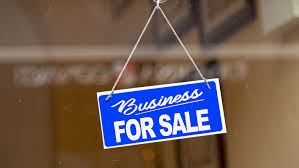Introduction
business for sale owner financing .The process of buying and selling a business can be complex, often requiring significant financial investment. One option that has gained popularity among both buyers and sellers is owner financing. This arrangement allows a business to be sold with the seller providing financing to the buyer, eliminating the need for traditional bank loans. This method has distinct advantages for both parties, making it an attractive option in today’s business landscape.
What is Owner Financing?
business for sale owner financing .Owner financing, also known as seller financing, is a deal in which the business seller acts as the lender. Instead of the buyer securing a loan from a financial institution, the seller agrees to accept payments over time for the purchase price. The buyer typically makes a down payment and then pays the remaining balance through scheduled installments, often with interest.
Benefits of Owner Financing for Buyers
1. Easier Access to Business Ownership
business for sale owner financing .Many potential business buyers struggle to secure traditional financing due to strict lending requirements. Owner financing provides an opportunity to purchase a business without relying on banks or lenders.
2. Flexible Payment Terms
business for sale owner financing .Unlike conventional loans, seller financing terms can be more flexible. Buyers and sellers can negotiate interest rates, payment schedules, and loan duration to create a deal that works for both parties.
3. Faster Closing Process
business for sale owner financing .Traditional bank loans can take months to process, delaying the transaction. With owner financing, the deal can be closed quickly, allowing the buyer to take ownership and begin operations sooner.
4. Opportunity to Build Business Credit
Since the buyer makes payments directly to the seller, it allows them to establish a strong credit history, which can be beneficial for future financial needs.
Benefits of Owner Financing for Sellers
1. Attract More Buyers
business for sale owner financing, Offering owner financing expands the pool of potential buyers, increasing the chances of selling the business quickly.
2. Higher Selling Price
Sellers can often negotiate a higher price since they are offering favorable financing terms. Buyers may be willing to pay a premium for the convenience and flexibility.
3. Generate Passive Income
Instead of receiving a lump sum, sellers benefit from ongoing income in the form of monthly payments, providing financial stability and potential tax advantages.
4. Retain a Stake in the Business’s Success
Since the seller is financing part of the deal, they have a vested interest in ensuring the business continues to succeed. This can be beneficial if the seller remains involved in an advisory role.
Key Considerations When Structuring an Owner Financing Deal
1. Determine the Down Payment
Sellers typically require a down payment to ensure the buyer has some financial stake in the business. A reasonable down payment ranges from 10% to 50% of the purchase price.
2. Set the Interest Rate and Loan Term
business for sale owner financing Interest rates should be competitive yet fair to both parties. Loan terms can range from 3 to 10 years, depending on the agreement.
3. Create a Legally Binding Agreement
business for sale owner financing Both parties should consult legal and financial professionals to draft a contract outlining repayment terms, default consequences, and any additional stipulations.
4. Verify Buyer’s Financial Standing
Sellers should assess the buyer’s credit history, business experience, and financial capacity to ensure they can meet the payment obligations.
5. Include a Default Clause
The agreement should specify what happens if the buyer fails to make payments. This could involve repossession of the business or legal action to recover outstanding balances.
Industries Where Owner Financing is Common
Owner financing is widely used across various industries, including:
- Restaurants and Cafés – Many food businesses sell with owner financing due to high upfront costs and the difficulty in securing bank loans.
- Retail Stores – Small business owners often sell their stores with flexible financing options.
- Automotive Services – Auto repair shops, dealerships, and similar businesses frequently use this method.
- Manufacturing – Businesses requiring specialized equipment often find owner financing advantageous.
- Online Businesses – E-commerce stores, digital agencies, and software firms are increasingly sold with seller financing.
Risks and How to Mitigate Them
While owner financing offers numerous benefits, it also comes with risks:
- For Sellers: There is a chance the buyer defaults on payments. To mitigate this risk, sellers should require a significant down payment, conduct credit checks, and retain legal recourse.
- For Buyers: If the seller retains rights to the business, they might repossess it if payments are missed. Buyers should carefully review all contract terms before agreeing.
Conclusion
Owner financing is a powerful tool that benefits both buyers and sellers. Buyers gain access to business ownership with flexible terms, while sellers can sell their businesses faster and potentially at a higher price. However, proper due diligence, legal agreements, and risk mitigation strategies are essential for a successful transaction. If structured correctly, owner financing can be a win-win solution for both parties involved.





